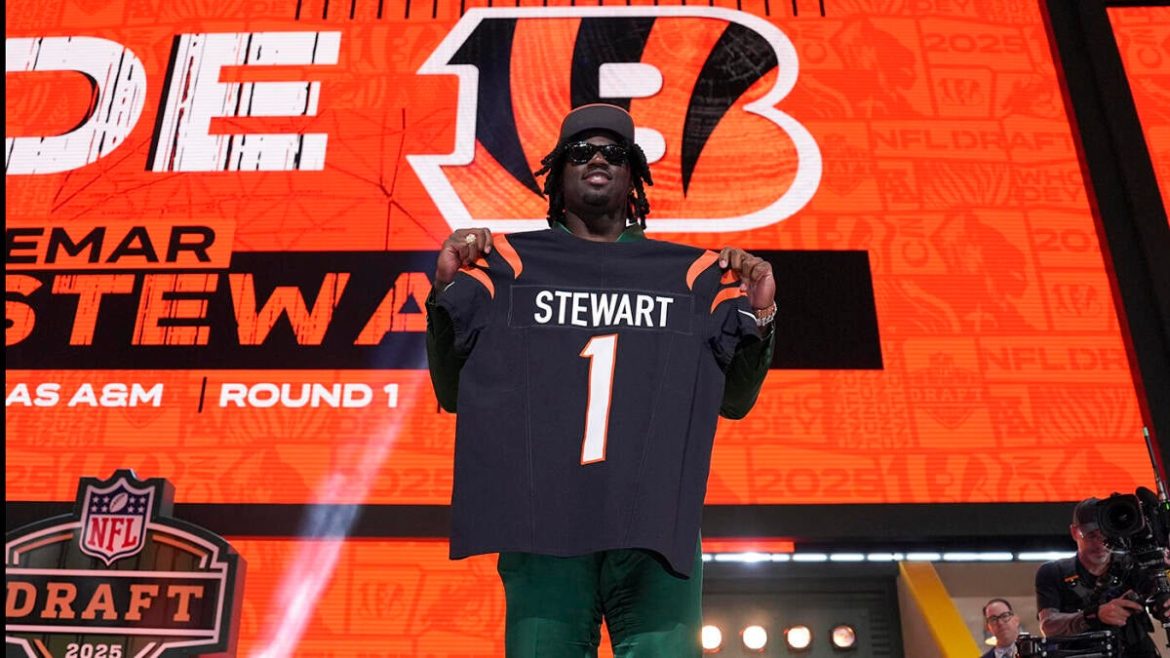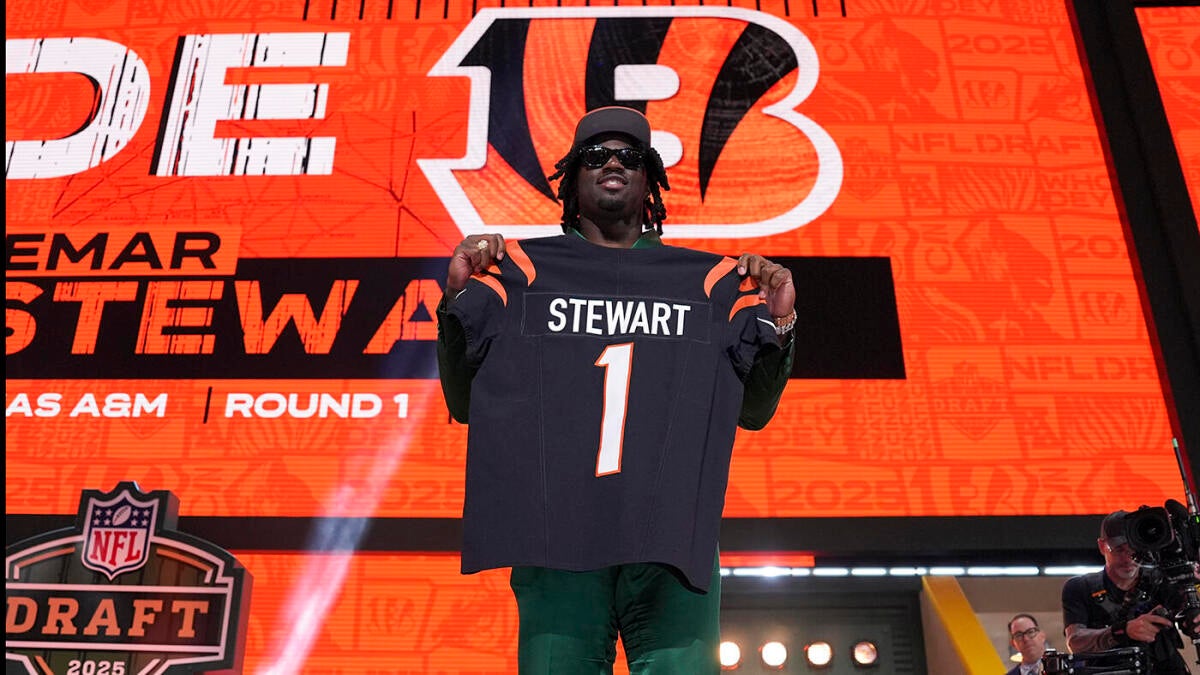The Shemar Stewart Contract Dispute: A Closer Look at the Bengals’ Rookie Negotiations
The Cincinnati Bengals’ 2025 first-round draft pick, defensive end Shemar Stewart, has become a focal point of controversy, not for his performance on the field, but for his ongoing contract dispute. This tug-of-war has led to Stewart’s absence from critical team activities, notably the mandatory minicamp, stirring conversations about rookie contracts, team-player relations, and negotiation dynamics within the NFL.
—
Background: Stewart’s Contract Impasse and Its Roots
When teams select players in the first round, rookie contracts are almost always standardized, governed by the NFL’s rookie wage scale. Stewart, picked No. 17 overall, was expected to sign a four-year deal, including preset salaries and bonuses. However, unlike many peers, Stewart has not signed his rookie contract, nor the crucial participation waiver that would allow him to fully engage in team practices and activities.
Reports reveal that the crux of the stalemate lies in specific language within the contract, particularly clauses that allow the Bengals to void future guarantees. This language touches on injury protections and financial assurances, pivotal for a player’s security given the physical nature of football. Stewart’s camp perceives the Bengals’ contract offer as “lacking,” especially regarding guaranteed money and protections in case of injury.
—
The Impact on Team Dynamics and Stewart’s Standing
Stewart’s contract dispute has tangible ramifications on his involvement with the Bengals in the offseason, a period vital for rookie acclimatization and development. He attended some voluntary workouts and team activities initially but left the mandatory minicamp early and sat out rookie minicamp entirely once the deadlock persisted.
This absence has not gone unnoticed by fans or analysts. Some Bengals supporters express frustration, viewing Stewart’s holdout as potentially detrimental to team chemistry and his own immediate contribution. Conversely, others acknowledge a rookie’s right to secure a contract that respects his value and future security, highlighting how contract disputes are increasingly common in today’s NFL landscape.
The Bengals themselves have demonstrated prior difficulties in contract negotiations with first-round selections, evidenced by a similar situation with 2024 first-round pick Amarius Mims. This pattern may suggest systemic challenges in the team’s negotiation strategy or approach to rookie contracts.
—
The Broader Context: Why Contract Language Matters
The dispute underscores the delicate balance between teams’ business interests and players’ career security. For teams, clauses that allow them to void guarantees provide flexibility in managing salary caps and mitigating risks associated with injuries or underperformance. For players, especially rookies emerging from college, guaranteed money and clear injury protections are crucial financial safeguards.
Shemar Stewart’s insistence on altering or rejecting problematic language is a reflection of growing awareness and assertiveness among young players regarding their contractual rights. His stance—“I’m 100% right,” as reported—signals confidence in his position and underlines the evolving dynamics in negotiating rookie contracts beyond mere salary figures.
—
Negotiation Tactics and the NFL Rookie Landscape
The timing of Stewart’s holdout during the Bengals’ mandatory minicamp is strategic. While rookies must eventually sign to participate fully, withholding participation increases leverage by highlighting the player’s absence during early preparation phases. However, this tactic also poses risks; prolonged contract disputes can delay a player’s integration into the team system, affecting readiness for the regular season.
Interestingly, Stewart’s dispute shares common themes with other rookie holdouts that focus on guaranteed money and injury protections, issues that have grown in prominence with the increasing financial scale of the NFL and attention to player health risks.
—
Implications for the Bengals and Stewart
From a Bengals perspective, the protracted negotiations risk sidelining a first-round draft asset during critical stages of team development. In addition, lingering public disputes can affect team reputation and player morale. The organization will need to weigh the cost of pushing hard on contractual clauses against the value of early Stewart participation.
For Stewart, maintaining firm negotiation posture underscores a commitment to security and fairness but carries the burden of initial estrangement from team activities. This could shape early perceptions but also sets a precedent for his career’s business side.
—
Conclusion: Moving Beyond the Stalemate Towards Resolution
Shemar Stewart’s contract dispute with the Cincinnati Bengals is emblematic of the modern rookie contract friction where guaranteed protections and club control clauses collide. This standoff illuminates evolving power dynamics in NFL negotiations, with players increasingly vocal and assertive about their contractual conditions.
Resolving this impasse will require both sides to engage in pragmatic compromise: the Bengals balancing fiduciary concerns with player relations, and Stewart navigating his rookie entry with a clear statement of value and rights. How quickly and equitably this happens will not only impact Stewart’s career trajectory but could influence future rookie negotiations for the Bengals and across the league.
Ultimately, this situation reflects a broader trend where contracts are as much about legal language and protections as about the game itself. For fans, it is a reminder that the business of football shapes even the earliest days of a promising player’s professional journey.





